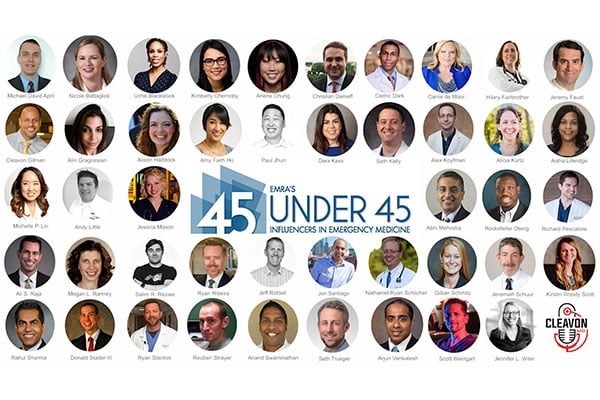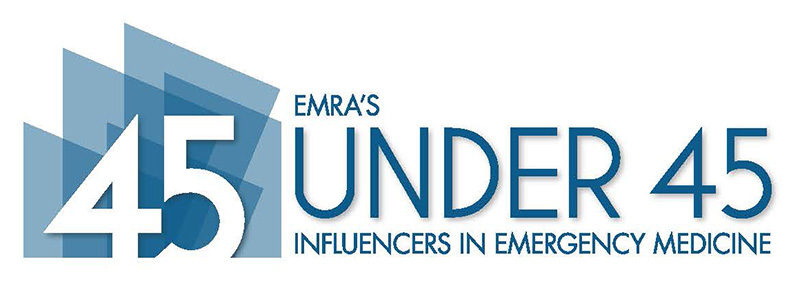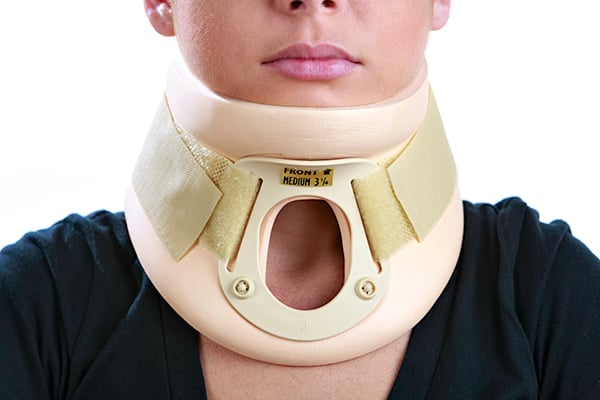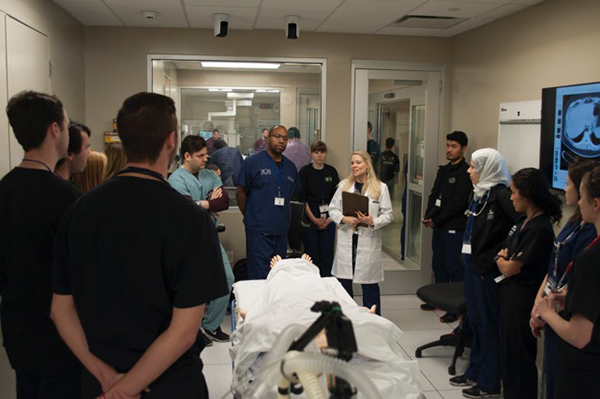EMRA 45 Under 45

EMRA 45 Under 45! These Docs Are On The Rise
Check out this great RAP by Dr. Cleavon Gilman, third-year resident in emergency medicine at New York-Presbyterian Hospital.
"..they Advocate, Educate, and Innovate, shaping minds they combine as EMRAs 45 Under 45..."
Watch Now As EMRA celebrates its 45th anniversary, we celebrate young influencers in emergency medicine who shape the future in communities, hospitals, and our specialty.
As EMRA celebrates its 45th anniversary, we celebrate young influencers in emergency medicine who shape the future in communities, hospitals, and our specialty.
2019 EMRA 45 Under 45 Award Recipients
On behalf of the EMRA Board of Directors, we are excited to announce the EMRA 45 Under 45 list of recipients! We received over 400 nominations that contained unique accomplishments and powerful stories.
We will begin revealing details on one recipient each day via social media starting 45 days ahead of our 45th Anniversary celebration.
Please come back and read about all of these impressive young physicians!
Michael David April, MD, PhD, MSc, FACEP
Nicole Battaglioli, MD, FAWM
Uché Blackstock, MD
Kimberly Chernoby, MD, JD, MA
Arlene Chung, MD, MACM
Christian Dameff, MD, MS
Cedric Dark, MD, MPH, FACEP
Carrie de Moor, MD, FACEP
Hilary E. Fairbrother, MD, MPH, FACEP
Jeremy S. Faust, MD, MS, MA
Cleavon Gilman, MD
Alin Gragossian, DO, MPH
Alison Haddock, MD, FACEP
Amy Faith Ho, MD
Paul Jhun, MD
Dara Kass, MD, FACEP
Seth Kelly, MD, MBA
Alex Koyfman, MD, FACEP
Alicia Kurtz, MD
Aisha Liferidge, MD, FACEP
Michelle P. Lin, MD, MPH, MS, FACEP
Andy Little, DO
Jessica Mason, MD
Abhi Mehrotra, MD, MBA, FACEP
Rockefeller Oteng, MD, FACEP, FGCS
Richard Pescatore, DO, FAAEM
Ali S. Raja, MD, MBA, MPH, FACHE
Megan L. Ranney, MD, MPH, FACEP
Salim R. Rezaie, MD, FACEP
Ryan Ribeira, MD, MPH
Jeff Riddell, MD
Hon. Jon Santiago, MD, MPH
Hon. Nathaniel Ryan Schlicher, MD, JD, MBA, FACEP
Gillian Schmitz, MD, FACEP
Jeremiah Schuur, MD, MHS, FACEP
Kirstin Woody Scott, MPhil, PhD
Rahul Sharma, MD, MBA, CPE, FACEP
Donald Stader III, MD, FACEP
Ryan Stanton, MD, FACEP, FAAEM
Reuben Strayer, MD, FRCPC, FACEP, FAAEM
Anand Swaminathan, MD, MPH, FACEP
Seth Trueger, MD, MPH, FACEP
Arjun Venkatesh, MD, MBA, MHS
Scott Weingart, MD, FACEP, FCCM
Jennifer L. Wiler, MD, MBA, FACEP
Over 400 applications were reviewed by the selection committee, comprised of Steven J. Stack, MD, MBA, FACEP, Zach Jarou, MD, Omar Z. Maniya, MD, MBA, Hannah Hughes, MD, MBA, Ven Subramanyam, MD, Erin Karl, MD, and Jazmyn Shaw.
The selection committee was blinded to EMRA and/or ACEP membership status. Care was taken to ensure both a diverse applicant pool and awardee group. For any questions, contact Cathey Wise at cwise@emra.org
Related Content







